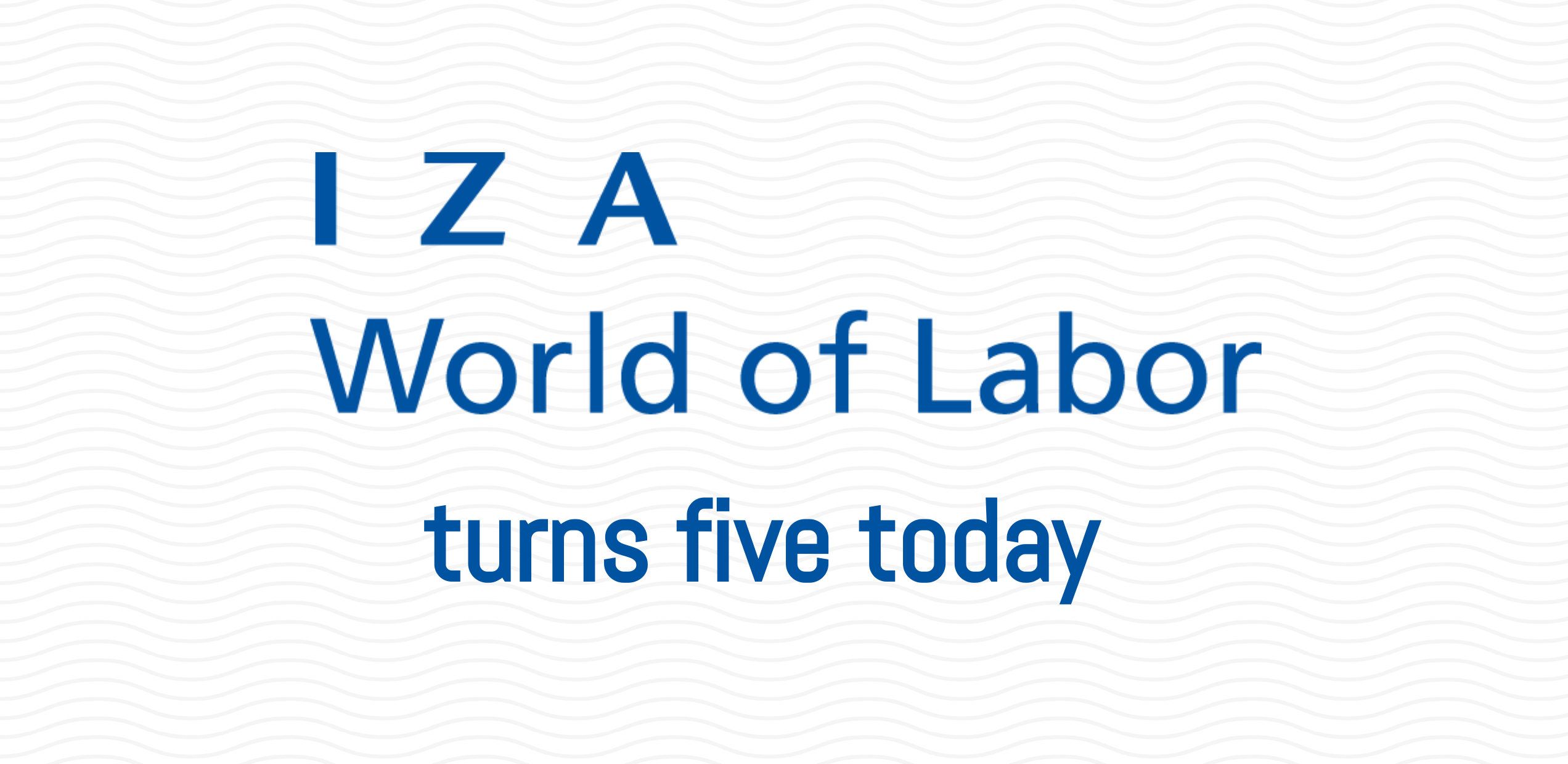IZA World of Labor turns five

Today, on International Workers’ Day, or Labor Day, we celebrate five years since IZA World of Labor first launched at the National Press Club in Washington, DC on May 1, 2014. We launched with 50 articles authored by leading economists from around the world and we are proud to say that today, the website hosts over 480 articles (463 new and 23 revised) summarizing the research available on key issues in labor economics.
One of our big milestones happened in 2017, when we relaunched the website with a new design and features including article alerts and key topics pages. Since our launch, we’ve consistently focused on making our articles accessible to an even wider audience. Since 2017, all article one-pagers have been available in German and we are currently in the process of translating all article one-pagers into Spanish. Looking forward, new articles will be regularly added to the site, while existing articles will be revised as new research emerges.
Since our launch, the videos we post have consistently been a popular way to introduce the issues covered in IZA World of Labor articles. You can find these on our YouTube channel but also posted in the video section of our website and on our Facebook and Twitter feeds.
We thought that a good way to celebrate our 5th birthday would be to revisit some of our most popular videos since launch:
The importance of labor supply and the role of public policy
The very first video we ever posted was in September 2013 and it is of Richard Blundell of University College London and IZA who explains the importance of labor supply and the role that public policy plays. You can also read his IZA World of Labor article which looks at the role of tax policy How responsive is the labor market to tax policy?
Can brain drain can be good for your country?
We were also fortunate to be able to interview UC Santa Barbara's Peter J. Kuhn. In his video, he discusses the relationship between migration, brain drains, and brain gains. While it can be quite costly for a country if the smartest brains move abroad, Kuhn explains why brain drain can also be beneficial for a country and gives advice to policymakers on how to react to the international migration of highly skilled workers.
The benefits of blind recruitment
Ulf Rinne, Deputy Director of Research at IZA, talked to us about the merits and problems of anonymous job applications. In his article, Anonymous job applications and hiring discrimination, Rinne also argues that blind recruitment can level the playing field in access to jobs but cannot prevent all forms of discrimination.
Why do women fall behind men?
Last year we spoke with Astrid Kunze, Professor of Economics at the Norwegian School of Economics. We interviewed her about why women fall behind men in terms of career prospects and wages, how and why the gender gap increases, and we touched on women’s return to the labor market after giving birth.
IZA World of Labor—Economic inequality
The most recent addition to our video library is an animation about economic inequality. This video explains what economic inequality is, why it matters, and what causes it. It also offers suggestions on how inequality can be reduced. You can find more information about this subject on our key topics page.
We look forward to bringing you more relevant and concise information on labor market issues worldwide.